Related Research Articles
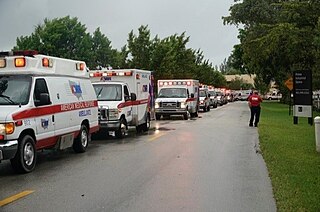
Emergency medical services (EMS), also known as ambulance services or paramedic services, are emergency services that provide urgent pre-hospital treatment and stabilisation for serious illness and injuries and transport to definitive care. They may also be known as a first aid squad, FAST squad, emergency squad, ambulance squad, ambulance corps, life squad or by other initialisms such as EMAS or EMARS.
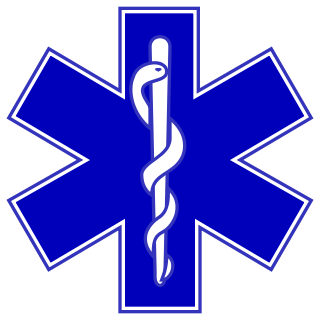
An emergency medical technician (EMT), also known as an ambulance technician, is a health professional that provides emergency medical services. EMTs are most commonly found working in ambulances. In English-speaking countries, paramedics are a separate profession that has additional educational requirements, qualifications, and scope of practice.
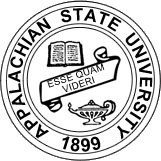
Appalachian State University is a public university in Boone, North Carolina. It was founded as a teachers college in 1899 by brothers B. B. and D. D. Dougherty and the latter’s wife, Lillie Shull Dougherty. The university expanded to include other programs in 1967 and joined the University of North Carolina System in 1971.
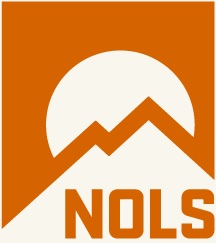
NOLS is a non-profit outdoor education school based in the United States dedicated to teaching environmental ethics, technical outdoors skills, wilderness medicine, risk management and judgment, and leadership on extended wilderness expeditions and in traditional classrooms. It was previously known as the National Outdoor Leadership School, but in 2015 this label was retired in favor of the independonym "NOLS". The NOLS mission is to be the leading source and teacher of wilderness skills and leadership that serve people and the environment. NOLS runs courses on six continents, with courses in a variety of wilderness environments and for almost any age group.
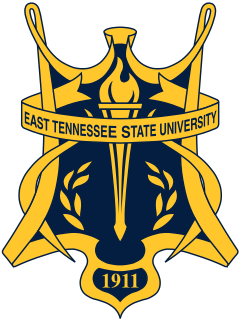
East Tennessee State University (ETSU) is a public research university in Johnson City, Tennessee. Although it is part of the State University and Community College System of Tennessee, the university is governed by an institutional Board of Trustees. As of May 2017, it is the fourth largest university in the state and has off-campus centers in nearby Kingsport, Elizabethton, and Sevierville.

Union College is a private college in Barbourville, Kentucky. The college was founded in 1879 and is affiliated with the United Methodist Church. Union's approximately 825 undergraduate students represent 27 states and 9 countries.

Lincoln Memorial University (LMU) is a private university in Harrogate, Tennessee. LMU's 1,000-acre (4.0 km2) campus borders on Cumberland Gap National Historical Park. LMU is accredited by the Southern Association of Colleges and Schools (SACS). In March 2019, the LMU Duncan School of Law received full accreditation by the American Bar Association.

Nova Southeastern University is a private research university with its main campus in Fort Lauderdale-Davie, Florida. The university consists of 18 total colleges, centers, and schools offering over 150 programs of study. The university offers professional degrees in the social sciences, law, business, osteopathic medicine, allopathic medicine, allied health, pharmacy, dentistry, optometry, physical therapy, education, occupational therapy, and nursing. As of 2019, 20,576 students were enrolled at Nova Southeastern University, with more than 170,000 alumni. With a main campus located on 314 acres in Davie, Florida, NSU operates additional campuses in Dania Beach, North Miami Beach, Tampa, Florida, and centers throughout the state of Florida.

Wilderness medicine is defined by difficult patient access, limited equipment, and environmental extremes. Today, wilderness or expedition medicine is practiced by Wilderness First Responders, Wilderness EMTs, Remote/Offshore/Wilderness Paramedics and Physicians on expeditions, in outdoor education, search and rescue, mountain rescue, remote area operations including research, exploration, and offshore oil platforms, as well as tactical environments. In mainland Europe, where mountain rescue is done by paid professionals, there are courses for physicians that help qualify them to be mountain rescue or expedition doctors. Many of these courses lead to an International Diploma in Mountain Medicine, which is recognized by the Union Internationale des Associations Alpinistes.
Wilderness emergency medical technician (WEMT) is an emergency medical technician that is better equipped than licensed healthcare providers, who typically function almost exclusively in urban environments, to better stabilize, assess, treat, and protect patients in remote and austere environments until definitive medical care is reached. Despite the term, WEMT training is available and geared not just to the EMT, but also the paramedic, prehospital registered nurse, registered nurse, physician assistant, and medical doctor. After all, without an understanding of the applicable gear, skills, and knowledge needed to best function in wilderness environments, including a fundamental understanding of the related medical issues more commonly faced, even an advanced provider may often become little more than a first responder when called upon in such an emergency. WEMT training and certification is similar in scope to wilderness advanced life support (WALS) or other courses for advanced providers such as AWLS, WUMP, WMPP, and RMAP. Unlike more conventional emergency medicine training, wilderness emergency medicine places a greater emphasis on long-term patient care in the backcountry where conventional hospital care can be many hours, even days, away to reach.
Wilderness first responders are individuals who are trained to respond to emergency situations in remote locations. They are part of a wide variety of wilderness medical providers who deal with medical emergencies that occur in wilderness settings. While wilderness first responder can generically refer to anyone providing first response, more typically, this term refers to individuals trained and certified with specific Wilderness First Responder (WFR) certification.
Stonehearth Open Learning Opportunities (SOLO) is the oldest continuously operating school of wilderness medicine in the world. SOLO is one of the originators of today's Wilderness First Responder (WFR) and Wilderness Emergency Medical Technician (WEMT) programs. SOLO is accredited by the University of New Hampshire's Lifelong Learning program. In 2004 it provided first aid training to the cast and crew of PBS' Colonial House program, and a number of colleges and universities across the United States recognize its courses for credit. SOLO also trains advanced providers in disaster recovery medicine and extended remote care through its GEOMEDIC course.

R Adams Cowley was an American surgeon considered a pioneer in emergency medicine and the treatment of shock trauma. Called the "Father of Trauma Medicine", he was the founder of the United States' first trauma center at the University of Maryland in 1958, after the US Army awarded him $100,000 to study shock in people—the first award of its kind in the United States. The trauma unit at first consisted of two beds, and was later expanded to four beds. Many people called the four-bed unit the "death lab." Cowley was the creator of the "Golden Hour" concept, the period of 60 minutes or less following injury when immediate definitive care is crucial to a trauma patient's survival. He was a leader in the use of helicopters for medical evacuations of civilians, beginning in 1969, and founded the Society of Thoracic Surgeons. He also founded the nation's first statewide EMS system, called MIEMSS by Executive Order of Maryland's Governor Mandel, 1972, as well as the National Study Center for Trauma and EMS, enacted by Congress in 1986 and signed into law by President Ronald Reagan. He is also known for being one of the first surgeons to perform open-heart surgery and invented both a surgical clamp that bears his name and the prototype pacemaker that was used by Dwight D. Eisenhower.
The Wilderness Medical Society was created on 15 February 1983 by three physicians from California, United States — Dr. Paul Auerbach, Dr. Ed Geehr, and Dr. Ken Kizer. It is the largest international non-profit membership organization devoted to addressing wilderness medicine challenges, more specifically defined as "medical care delivered in those areas where fixed or transient geographic challenges reduce availability of, or alter requirements for, medical or patient movement resources". It also publishes Wilderness & Environmental Medicine Journal, Wilderness Medicine Magazine, and Wilderness Medicine Clinical Practice Guidelines.

The University of Utah School of Medicine is located on the upper campus of the University of Utah in Salt Lake City, Utah. It was founded in 1905 and is currently the only MD-granting medical school in the state of Utah.
A wilderness medical emergency is a medical emergency that takes place in a wilderness or remote setting affinitive care. Such an emergency can require specialized skills, treatment techniques, and knowledge in order to manage the patient for an extended period of time before and during evacuation.
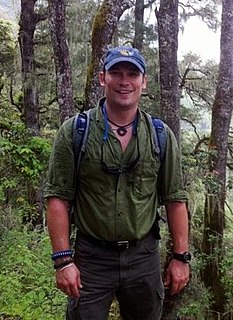
Seth Christopher Collings Hawkins is an American emergency physician, writer, anthropologist, and organizational innovator. He has made notable contributions to the fields of wilderness medicine, Emergency Medical Services (EMS), and medical humanities. His work has particularly specialized in EMS and wilderness medicine in the southeastern United States, where he is the founder of the Appalachian Center for Wilderness Medicine, the Appalachian Mountain Rescue Team, and the Carolina Wilderness EMS Externship.

Neal Pollock is a Canadian academic and diver. Born in Edmonton, Canada he completed a bachelor's degree in zoology; the first three years at University of Alberta and the final year at the University of British Columbia. After completing a master's degree he then served as diving officer at University of British Columbia for almost five years. He then moved to Florida and completed a doctorate in exercise physiology/environmental physiology at Florida State University.
William 'Will' R. Smith, is an emergency physician and wilderness medicine consultant who lectures about integrating combat medicine into wilderness rescues around the world. He started Wilderness & Emergency Medicine Consulting, a company that helps people with pre-trip planning, online medical support, travel medicine in remote areas and provides expert witness testimony in court cases related to wilderness medicine. As medical director for the National Park Service, he oversaw the largest rescue event ever to occur in Grand Teton National Park. He lives in Jackson, Wyoming where he is an emergency medicine physician at St. John’s Medical Center.
The Carolina Wilderness EMS Externship (CWEMSE) is an out-of-hospital medical training for 4th year medical students and resident physicians interested in furthering their educational interests in wilderness EMS.
References
- ↑ Hawkins, S (2008). "Organizing Wilderness Medicine on a Regional Scale". Wilderness and Environmental Medicine. 19 (4): 305–9. doi:10.1580/1080-6032-19.4.305. PMID 19099338. S2CID 6869630.
- ↑ Farlow, S (2009). "Into The Wild". Our State (January): 91.
- ↑ Donelan, S (2008). "The Wilderness Instructor: Introduction to Organizing Wilderness Medicine on a Regional Scale". Wilderness and Environmental Medicine. 19 (4): 304. doi:10.1580/07-WEME-WI-171.1. PMID 19099332. S2CID 32016691.
- ↑ Donelan, S (2008). "The Wilderness Instructor: Introduction to Organizing Wilderness Medicine on a Regional Scale". Wilderness and Environmental Medicine. 19 (4): 304. doi:10.1580/07-WEME-WI-171.1. PMID 19099332. S2CID 32016691.
- ↑ Appalachian Center for Wilderness Medicine. "ACWM Bulletin, June 2012, Vol. 5, No. 3" . Retrieved 27 November 2012.
- ↑ Lareau, SA; et al. (2010). "Advanced wilderness life support education using high-technology patient simulation". Wilderness & Environmental Medicine. 21 (2): 166–170.e2. doi: 10.1016/j.wem.2009.12.030 . PMID 20591382.
- ↑ Laskowski-Jones, L (2010). "Pursuing my wildest dreams". Nursing. 40 (12): 6. doi:10.1097/01.nurse.0000390689.79186.61.
- ↑ Krogh, R (2012-04-02). "Certified: Wilderness Medical Training -- The Nation's Top Four Wilderness First Aid Courses" . Retrieved 3 January 2013.
- ↑ "2nd ACWM Student Wilderness Medicine Conference in collaboration with the Appalachian Center for Wilderness Medicine". Archived from the original on 8 March 2016. Retrieved 2 January 2013.
- ↑ "3rd Annual ACWM Southeastern Student Wilderness Medicine Conference". Archived from the original on 16 January 2013. Retrieved 2 January 2013.
- ↑ "4th Annual ACWM Southeastern Student Wilderness Medicine Conference" . Retrieved 2 January 2013.
- ↑ "ACWM Southeastern Student Wilderness Medicine Conference" . Retrieved 2 January 2013.
- ↑ "Go Green in the New Year to Minimize Your environmental Impact". Best Practices in Emergency Services: 138. December 2008.
- ↑ Simon, B (2011). Wilderness Medicine. 28 (4).CS1 maint: untitled periodical (link)
- ↑ New River Rendezvous. "ACWM Will Be At New River Rendezvous" . Retrieved 3 January 2013.
- ↑ GO Outside Festival. "GO Outside Festival Events". Archived from the original on 22 November 2012. Retrieved 3 January 2013.
- ↑ Van Tilburg C (2011). Wilderness Medicine. 28 (1): 24.CS1 maint: untitled periodical (link)
- ↑ Hawkins, Seth (Winter 2009). "Member News" (PDF). Wilderness Medicine. 26 (1): 23.
- ↑ "Awards". Appalachian Center for Wilderness Medicine. Retrieved 2020-12-06.
- ↑ Georgia Health Sciences University News and Information. "Caudell Wins Mountain Laurel Award". Archived from the original on 17 February 2013. Retrieved 3 January 2013.
- ↑ "Awards". Appalachian Center for Wilderness Medicine. Retrieved 2020-12-06.
- ↑ National Outdoor Leadership School (NOLS). "Padgett Earns Mountain Laurel Award". Archived from the original on 31 January 2013. Retrieved 2 January 2013.
- ↑ Schimelpfenig, Sam (Winter 2012). "Society Matters: Members in the News". Wilderness Medicine. 29 (1): 26.
- ↑ PRWEB/Yahoo News. "Dr. Chris Moore Receives Mountain Laurel Award". Archived from the original on 9 February 2013. Retrieved 2 January 2013.
- ↑ Haskew, Mike. "A Mission for Medicine" (PDF). HealthScope Magazine. Retrieved December 6, 2020.
- ↑ Arnaudin, Edwin (December 26, 2013). "Western NC's Slim Ray is Father of Whitewater Rescue". Asheville Citizen-Times. Retrieved December 6, 2020.
- ↑ RAW Medicine. "RAW Medicine: The Hosts". RAW Medicine. Retrieved December 6, 2020.
- ↑ Appalachian Center for Wilderness Medicine (August 29, 2015). "Congratulations to Jono Bryant". Facebook. Retrieved December 6, 2020.
- ↑ Appalachian Center for Wilderness Medicine. "Awards". Appalachian Center for Wilderness Medicine. Retrieved December 6, 2020.
- ↑ "Awards". Appalachian Center for Wilderness Medicine. Retrieved 2020-12-06.